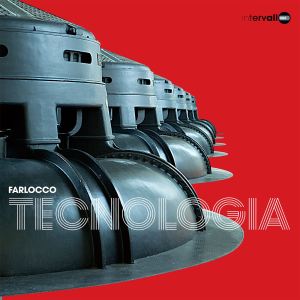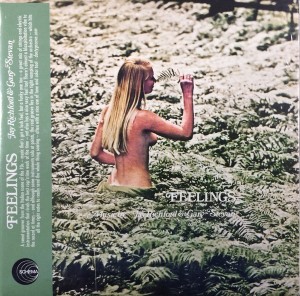Melodicon (aka Stefano Torossi)’s Strumentali: Sciocchezzuole (1988) Fonit Cetra
In 1988, Stefano Torossi using the alias Melodicon released Strumentali: Sciocchezzuole for Italy’s Fonit Cetra. The library music LP, also produced by Torossi, features a grab bag of themes and compositions.
Melodicon (aka Stefano Torossi) – Strumentali: Sciocchezzuole (1988) Fonit Cetra
Side A includes two versions of “Il Clown,” “Pupo bello,” “Carovana,” “Taratazum,” “Una semplice ballata,” “Sviolinata,” “Dindirindin,” “Deprimente,” and “Viola pensierosa,” with “Din don dan,” “Disperazione,” “Gesù è nato,” “Rompitimpani,” four different versions of “Sentirsi Solo,” and “Il mercato di Algeri” on side B.
The second version of Melodicon (aka Stefano Torossi)”s “Il Clown,” the opening track, is on SoundCloud:
Note: If any legal rights holders object to the posting of this rare, out of print, and unavailable track ripped from this correspondent’s personal collection, please drop a line and it will be removed immediately.
The limited release album is part of Nuovo Repertorio Editoriale’s Strumentali series, one of more than thirty LPs he is credited with composing and/or producing for Fonit Cetra between 1986 and 1990.
Melodicon (aka Stefano Torossi) – Strumentali: Sciocchezzuole (1988) Fonit Cetra back
The vinyl-only Strumentali releases were intended for use as library music on films, TV productions, and radio programs.
Melodicon (aka Stefano Torossi)’s western-style “Una semplice ballata” is online:
Note: If any legal rights holders object to the posting of this rare, out of print, and unavailable track ripped from this correspondent’s personal collection, please drop a line and it will be removed immediately.
The twenty original compositions by Stefano Torossi under his Melodicon pseudonym on Strumentali: Sciocchezzuole include pieces that showcase the alto saxophone, banjo, guitar, harmonica, organ, trumpet, violin, and several traditional instruments from North Africa and the Arab world (on “Carovana” and “Il mercato di Algeri”).
Melodicon (aka Stefano Torossi) – Strumentali: Sciocchezzuole (1988) Fonit Cetra label B
Although is is part of the Strumentali series, the album includes vocals on “Dindirindin,” “Disperazione,” and “Gesù è nato.”
Melodicon (aka Stefano Torossi)’s “Disperazione” is here:
Note: If any legal rights holders object to the posting of this rare, out of print, and unavailable track ripped from this correspondent’s personal collection, please drop a line and it will be removed immediately.
Sciocchezzuole, “Trifles” in English, compiles unconnected compositions originating from multiple places, a model used for several of the Torossi albums released by Fonit Cetra in this time period including Sandro Brugnolini and Stefano Torossi’s Strumentali: Emozionale in 1987.

Stefano Torossi in summer 2016
For the record, is Melodicon, a composing and producing credit that has recently appeared for the first time in a handful of online library music and auction references, another of your pseudonyms?
“Melodicon is indeed one of my aliases.”
What is the background of this album?
“The two albums [Strumentali: Emozionale and Strumentali: Sciocchezzuole] were simply a patchwork of selections grouped in the same category, but coming from various sources. They were not dedicated, unified projects.”
The third version of Melodicon (aka Stefano Torossi)’s “Sentirsi Solo” features a lone harmonica player:
Note: If any legal rights holders object to the posting of this rare, out of print, and unavailable track ripped from this correspondent’s personal collection, please drop a line and it will be removed immediately.
More Music by Melodicon (aka Stefano Torossi)
Melodicon is one of at least three aliases known to be used by Stefano Torossi. Two others, Farlocco and Fotriafa, were used for composing credits in the early to mid 1970s. Melodicon, on the other hand, was used by Torossi in the 1980s and 1990s.

Gruppo Sound – Strumenti e voci (1988) Flower/Fonit Cetra
This includes on Gruppo Sound’s Strumenti e voci, a Flower-Fonit Cetra joint effort that, like Strumentali: Sciocchezzuole, was released in 1988.

Gruppo Sound – Strumenti e voci (1988) Flower/Fonit Cetra back
For both LPs, Melodicon is used for composing and Torossi’s real name for the production credit.

Piero Montanari – Digital Age (1999) Rai Trade
In 1999, Stefano Torossi used Melodicon for the producing credit on Piero Montanari’s Digital Age, a CD released by Italy’s Rai Trade label. A closer look at that album is HERE.

Piero Montanari – Digital Age (1999) Rai Trade back
At this time, all three of these releases are out of print and difficult to find. For example, the single copy of Strumenti e voci available on Discogs will run you $200 US, the same price asked for the only copy of Strumentali: Sciocchezzuole found online–and Digital Age is even harder to find.
Piero Montanari’s “Alien Virus,” produced by Melodicon (aka Stefano Torossi), is on YouTube:
More Music Not Officially Credited to Stefano Torossi
Stefano Torossi used the alias Fotriafa for I Marc 4’s 1970 eponymous album on Nelson Records (GLP 1005) and his own Un tema: Tante variazioni released by Lupus Records around 1971 or 1972.

Fotriafa (aka Stefano Torossi) – Una tema: Tante variazioni (early 1970s) Lupus Records
Farlocco, another alias, was used for three albums on the Amedeo Tommasi-owned label Rotary Records in 1974–including Tecnologia reissued by Intervallo in 2016. Torossi also used Farlocco for Progresso, an impossible to find limited release LP, on Flirt Records in 1975.

Farlocco (aka Stefano Torossi) – Tecnologia (2016 Reissue) Intervallo (1974)
Besides using pseudonyms, a common practice by Italian artists in the 1970s due to legal restrictions at the time, Stefano Torossi also released music in which he was not officially credited. Two prominent examples are Franco De Gemini’s Si puo’ fare molto con 7 donne soundtrack on his own Beat Records Company in 1972–reissued by the same company in 2012, and Jay Richford and Gary Stevan’s Feelings in 1974 on Carosello Records–reissued by Schema in 2016.

Jay Richford and Gary Stevan (aka Puccio Roelens and Giancarlo Gazzani) – Feelings (2016 Reissue) Schema (1974)
A compilation of some of Stefano Torossi’s music from the 1970s credited to his Fotriafa and Farlocco aliases is found on YouTube. A few compositions by Franco De Gemini that feature an uncredited Torossi are also included:
Torossi Online Audio Sampler Covers 1986 to 1989
A selection of tracks from Stefano Torossi found on SoundCloud covering 1986 to 1989 includes:
- Amedeo Tommasi and Torossi’s “Camel Trophy” and “Natura violenta” from their Musica per commenti sonori: L’uomo e la natura (1986) album on Costanza Records (reissued as Strumentali: L’uomo e la natura (1989) by Fonit Cetra)
- Sandro Brugnolini and Torossi’s “La fossa dei serpenti,” “Cavaliere d’acciaio,” and “Replicante” from their Strumentali: Genere computermusic – homo tecnologicus (1986) album on Fonit Cetra
- Sandro Brugnolini and Torossi’s “Fiabesk,” “Il filo di Arianna,” “Uccellini,” and “Delirium tremens” from their Strumentali: Emozionale (1987) album on Fonit Cetra
- Melodicon (aka Torossi)’s “Il Clown #2,” “Una semplice ballata,” “Disperazione,” and “Sentirsi Solo #3” from his Strumentali: Sciocchezzuole (1988) album on Fonit Cetra
- Brugnolini’s “Work” from Strumentali: Il mondo del lavoro (1989), produced by Torossi
- Giuliano Sorgini’s “Freddezza” and “Raccontare” from his Strumentali: Sentimenti per grande orchestra (1989) on Fonit Cetra, produced by Torossi
Posted on 20 August 2016, in Album Spotlight and tagged Farlocco aka Stefano Torossi, Fonit Cetra, Fotriafa aka Stefano Torossi, Italian library music, Melodicon (aka Stefano Torossi), Piero Montanari, production music, soundtrack music, Stefano Torossi. Bookmark the permalink. Leave a comment.
Leave a comment
Comments 0